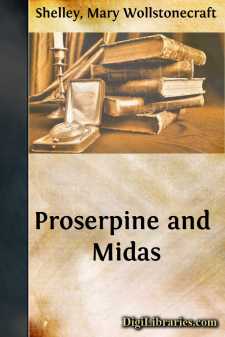Categories
- Antiques & Collectibles 13
- Architecture 36
- Art 48
- Bibles 22
- Biography & Autobiography 813
- Body, Mind & Spirit 142
- Business & Economics 28
- Children's Books 12
- Children's Fiction 9
- Computers 4
- Cooking 94
- Crafts & Hobbies 4
- Drama 346
- Education 46
- Family & Relationships 57
- Fiction 11828
- Games 19
- Gardening 17
- Health & Fitness 34
- History 1377
- House & Home 1
- Humor 147
- Juvenile Fiction 1873
- Juvenile Nonfiction 202
- Language Arts & Disciplines 88
- Law 16
- Literary Collections 686
- Literary Criticism 179
- Mathematics 13
- Medical 41
- Music 40
- Nature 179
- Non-Classifiable 1768
- Performing Arts 7
- Periodicals 1453
- Philosophy 64
- Photography 2
- Poetry 896
- Political Science 203
- Psychology 42
- Reference 154
- Religion 513
- Science 126
- Self-Help 84
- Social Science 81
- Sports & Recreation 34
- Study Aids 3
- Technology & Engineering 59
- Transportation 23
- Travel 463
- True Crime 29
Mary Wollstonecraft Shelley
Mary Wollstonecraft Shelley was an English novelist best known for her Gothic novel "Frankenstein; or, The Modern Prometheus" (1818), which is often regarded as one of the earliest examples of science fiction. Born in 1797, she was the daughter of the feminist philosopher Mary Wollstonecraft and the political philosopher William Godwin. Shelley's work often explored themes of ambition, hubris, and the consequences of transgressing natural boundaries. Besides "Frankenstein", she also wrote several other novels, short stories, and travel books, making significant contributions to the Romantic literary movement.
Author's Books:
Sort by:
Obstacles have long existed to my presenting the public with a perfect edition of Shelley's Poems. These being at last happily removed, I hasten to fulfil an important duty,—that of giving the productions of a sublime genius to the world, with all the correctness possible, and of, at the same time, detailing the history of those productions, as they sprang, living and warm, from his heart and...
more...
INTRODUCTION. I VISITED Naples in the year 1818. On the 8th of December of that year, my companion and I crossed the Bay, to visit the antiquities which are scattered on the shores of Baiae. The translucent and shining waters of the calm sea covered fragments of old Roman villas, which were interlaced by sea-weed, and received diamond tints from the chequering of the sun-beams; the blue and pellucid...
more...
INTRODUCTION Of all the novels and stories which Mary Wollstonecraft Shelley left in manuscript, only one novelette, Mathilda, is complete. It exists in both rough draft and final copy. In this story, as in all Mary Shelley's writing, there is much that is autobiographical: it would be hard to find a more self-revealing work. For an understanding of Mary's character, especially as she saw...
more...
INTRODUCTION. I. ‘The compositions published in Mrs. Shelley’s lifetime afford but an inadequate conception of the intense sensibility and mental vigour of this extraordinary woman.’ Thus wrote Dr. Garnett, in 1862 (Preface to his Relics of Shelley). The words of praise may have sounded unexpectedly warm at that date. Perhaps the present volume will make the reader more willing to subscribe, or...
more...
Chapter 1 I am by birth a Genevese, and my family is one of the most distinguished of that republic. My ancestors had been for many years counsellors and syndics, and my father had filled several public situations with honour and reputation. He was respected by all who knew him for his integrity and indefatigable attention to public business. He passed his younger days perpetually occupied by the...
more...






